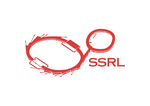Keywords: Neutron science or Open Science or Recyclable Materials or batteries or circular economy or e-learning or electronics or expands or metadata or open data or scientific software or ssrl or substantial
-

PaN Learning
PaN Learning is the E-learning platform of the PaN Training Portal for the Photon and Neutron...
48 training materialsPaN Learning https://e-learning.pan-training.eu/ https://pan-training.eu/content_providers/pan-training PaN Learning is the E-learning platform of the PaN Training Portal for the Photon and Neutron community. The platform has a long history and is also part of the EU-founded projects PaNOSC and ExPaNDS. * The E-learning platform hosts free education and training for scientists and students. * In the platform you will find courses on both the theory of photon and neutron scattering and how to use python code or software for data reduction and modelling. * All content from our E-learning platform is also listed in this catalogue of PaN training materials. /system/content_providers/images/000/000/027/original/PaNelearning.png?1651055954 -

Stanford Synchrotron Radiation Lightsource
The Stanford Synchrotron Radiation Lightsource (SSRL), a Directorate of the SLAC National...
2 training materialsStanford Synchrotron Radiation Lightsource https://www-ssrl.slac.stanford.edu/ https://pan-training.eu/content_providers/stanford-synchrotron-radiation-lightsource The Stanford Synchrotron Radiation Lightsource (SSRL), a Directorate of the SLAC National Accelerator Laboratory (SLAC), is an Office of Science User Facility operated for the U.S. Department of Energy (DOE) by Stanford University. Located in Menlo Park, California, SLAC is a multi-program national laboratory exploring frontier questions in photon science, astrophysics, biochemistry, material science, particle physics and accelerator research. SLAC engages in fundamental research which is published or shared broadly with the scientific community. The DOE Office of Science is the single largest supporter of basic research in the physical sciences in the United States, and is working to address some of the most pressing challenges of our time. The SSRL SPEAR3 3-GeV, high-brightness third-generation storage ring, upgraded in 2004, operates at 500 mA in top-off mode, with high reliability and low emittance. SSRL's extremely bright x-rays are a resource for researchers to study our world at the atomic and molecular level, leading to major advances in energy production, environmental remediation, nanotechnology, new materials, biology and medicine. SSRL provides unique educational experiences and serves as a vital training ground for future generations of scientists and engineers. /system/content_providers/images/000/000/030/original/ssrl-logo-red.jpg?1649949235 -

Digital Research Academy
We are a network of trainers who provide quality training for quality research. Our topics are...
2 training materialsDigital Research Academy https://digital-research.academy/ https://pan-training.eu/content_providers/digital-research-academy We are a network of trainers who provide quality training for quality research. Our topics are Open Science, Data Literacy, and Research Software Engineering. /system/content_providers/images/000/000/102/original/DRA_LogoColourPos.jpg?1715864600 -

Helmholtz Metadata Collaboration (HMC)
The Helmholtz Metadata Collaboration (HMC) promotes the qualitative enrichment of research data...
0 upcoming events (1 past event)Helmholtz Metadata Collaboration (HMC) https://helmholtz-metadaten.de/en https://pan-training.eu/content_providers/helmholtz-metadata-collaboration-hmc The Helmholtz Metadata Collaboration (HMC) promotes the qualitative enrichment of research data by means of metadata – and implements this approach across the whole organization. HMC develops and implements novel concepts and technologies for a sustainable handling of research data through high-quality metadata. Its main goal is to make the depth and breadth of research data produced by Helmholtz Centres findable, accessible, interoperable and reusable (FAIR) for the whole science community /system/content_providers/images/000/000/069/original/Unknown.jpeg?1713956606 -

ReMade@ARI (REcyclable MAterials DEvelopment at Analytical Research Infrastructures)
ReMade@ARI (REcyclable MAterials DEvelopment at Analytical Research Infrastructures) is funded by...
ReMade@ARI (REcyclable MAterials DEvelopment at Analytical Research Infrastructures) https://remade-project.eu https://pan-training.eu/content_providers/remade-ari-recyclable-materials-development-at-analytical-research-infrastructures ReMade@ARI (REcyclable MAterials DEvelopment at Analytical Research Infrastructures) is funded by the EU Commission’s Horizon Europe programme and co-funded by UK Research and Innovation (UKRI) and by the Swiss State Secretariat for Education, Research and Innovation. The project commits to leverage the development of innovative, sustainable materials for key components in the most diverse sectors, such as electronics, batteries, vehicles, construction, packaging, plastics, textiles and food on an unprecedented level. The overarching vision of the ReMade@ARI consortium is to make a substantial contribution towards breaking the vicious circle of shrinking resources and increasing amounts of waste, in an area in which only the consortium members possess the necessary advanced research infrastructures and the expertise to contribute. A radical shift to the circular economy is urgently needed to cope with the challenge of finite resources decreasing at a frightening pace while the quantity of waste increases alarmingly. The European Commission’s Circular Economy Action Plan (CEAP) adopted in March 2020 has identified seven key product value chains that must rapidly become circular, given their environmental impacts and circularity potentials: electronics, batteries and vehicles, construction, textiles, food, water and nutrients, plastics and packaging. This requires substantial research on materials with a very high recycling capability while exhibiting competitive functionalities. In ReMade@ARI, the most significant European analytical research infrastructures join forces to pioneer a support hub for materials research facilitating a step change to the Circular Economy. ReMade@ARI offers coordinated access to more than 50 European analytical research infrastructures representing a broad landscape of facilities constituting which constitutes an unprecedented offer for the user communities. The project provides scientists who are working on the design of new recyclable materials with analytical tools that enable them to explore the properties and the structure of their material in smallest details up to atomic resolution. /system/content_providers/images/000/000/033/original/Unknown.jpeg?1679591889